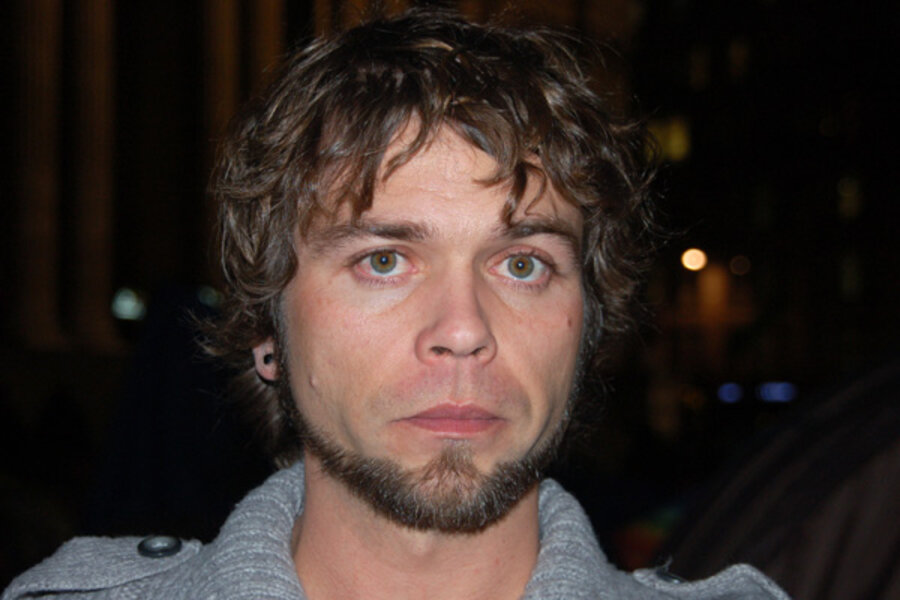For a member of a protest movement supposedly disillusioned with modern democracy, Adam Fitzmaurice has a surprising answer to societal disengagement: more democracy.
“I’d like to see general assemblies set up where normal people can meet and discuss major issues,” says Mr. Fitzmaurice, 28. “I don’t want them to be another tier in the current structure, but a gathering, say, once a month. We could set them up first in towns and cities and then spread them out to the countryside – people having a direct say on what’s happening around them.”
Fitzmaurice, an American, moved to the UK in September to study music industry management at a university. He joined the Occupy London campaign when it set up camp around St Paul’s Cathedral in October and later Finsbury Park and then a disused UBS office in Hackney, where he currently stays.
“Look at us in St Paul’s. We’re a pretty small group of committed people, but we’ve forced a 180 degree turn in attitude from the Church of England, got the business secretary to put a cap on CEO pay, met the head of the Financial Services Authority, and got [Prime Minister] David Cameron talking about a Robin Hood tax. All that in just two months."
“When I was growing up in Missouri, farmers refused to sell their grain because the price was too low. They got together and only sold when they got a decent price. That’s what society can do when it works together, and I think assemblies could achieve that.”
– Ian Evans, London
Next: Ammar Aziz: Voice for Pakistani poor







